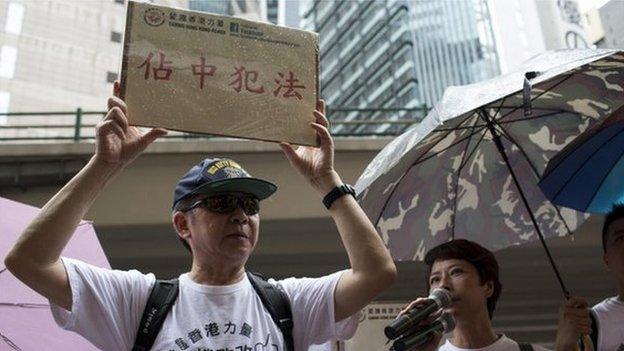Hong Kong moves to disqualify pro-democracy legislators
- Published
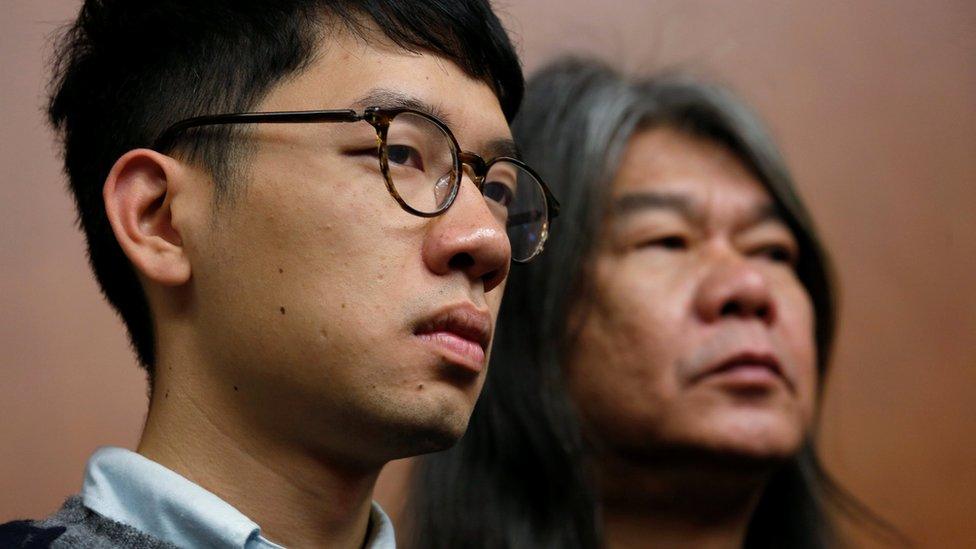
Nathan Law (left) and "Long Hair" Leung Kwok-hung could face disqualification
Hong Kong's government is moving to disqualify four pro-democracy lawmakers from parliament.
The government is launching legal challenges against Nathan Law, Edward Yiu, Lau Siu-lai and Leung Kwok-hung, arguing that the oaths they took when being sworn in were invalid.
It comes after two pro-independence politicians were disqualified after they insulted China during their oaths.
Critics describe the latest move as politically motivated.
However, the government said in a statement the action was "purely based on legal and enforcement concerns" with "no political consideration involved".
Mr Law, Mr Yiu and Ms Lau were part of a new wave of democracy activists elected in September, following Hong Kong's 2014 pro-democracy "umbrella protests".
Mr Law described the move as an "orchestrated attack... against all democrats and all voters supporting democracy".
Why is this a big deal?
This move from the government will be seen as highly controversial to many.
The government took Yau Wai-ching and Sixtus Leung, two young pro-independence legislators, to court in October - in an unprecedented bid to disqualify democratically elected officials.
The government argued that because Ms Yau and Mr Leung used swear words, displayed banners saying "Hong Kong is not China" and used a term considered derogatory towards China as they were sworn in to parliament, their oaths were invalid and they should be disqualified.
Public opinion in Hong Kong was divided over that case - many were critical of the government's involvement, but others were angered by the duo's actions.
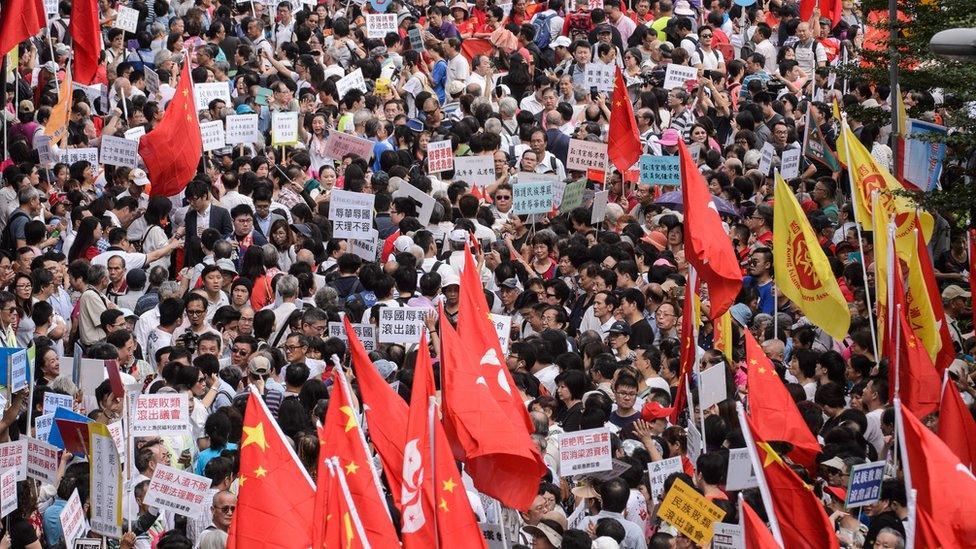
Tens of thousands of pro-Beijing protesters have demanded that Yau Wai-ching and Sixtus Leung be disqualified
However, many more people are critical about the move against the four lawmakers now being targeted. Their oaths weren't considered as controversial and the president of Hong Kong's parliament had allowed them to take their seats.
These four are also considered more moderate pro-democracy activists. They have not campaigned for Hong Kong's independence from China.
In previous parliamentary sessions, lawmakers have also shouted pro-democracy slogans or protested while oath-taking, without being disqualified.
Who are the four - and how did they take their oaths?
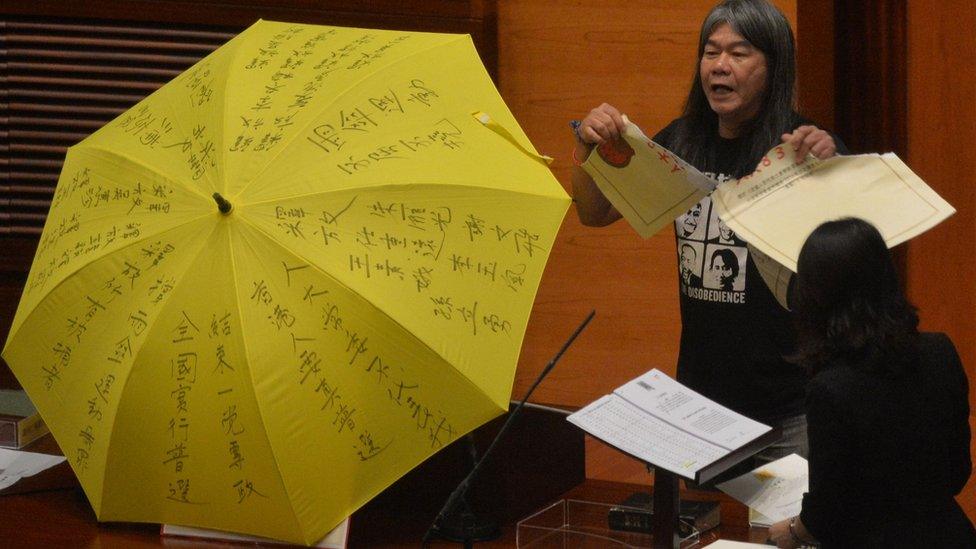
Leung Kwok-hung ripped up an unpopular ruling from Beijing while reading his oath
Leung Kwok-hung, known by the nickname "Long Hair", is a veteran pro-democracy politician. During his oath, he held a yellow umbrella - a symbol of the 2014 protests - varied his pace and shouted pro-democracy slogans after the reading.
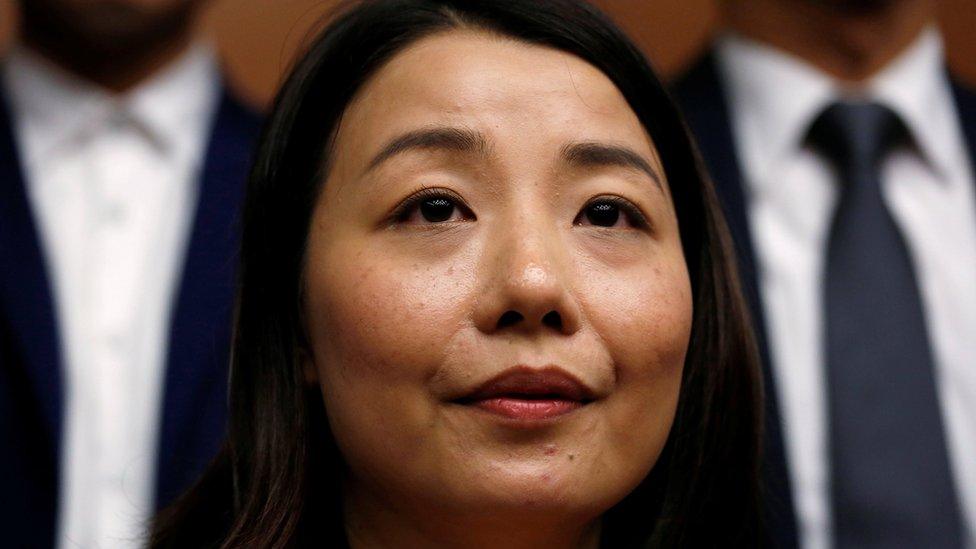
Lau Siu-lai won elections after her performance in TV debates impressed voters
Ms Lau is a university lecturer who took part in the 2014 umbrella protests.
She gave her oath in slow motion, pausing six seconds between each word, and later wrote on Facebook that she had done so because she felt the oath was meaningless.
Her oath was invalidated - but she was allowed to retake it later.
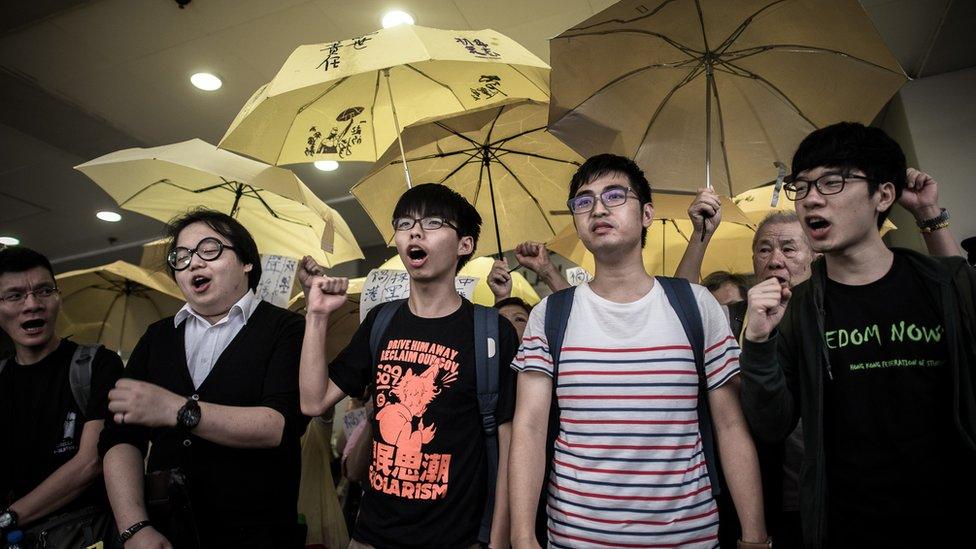
Nathan Law (right) was one of the students involved in the 2014 umbrella protests
Mr Law was one of the students taking part in the 2014 protests - and became Hong Kong's youngest ever lawmaker when he won September's parliamentary elections.
He quoted Mahatma Gandhi before taking his oath, saying: "You can never imprison my mind."
He also altered his tone when pledging allegiance to the People's Republic of China, making it sound like a question.
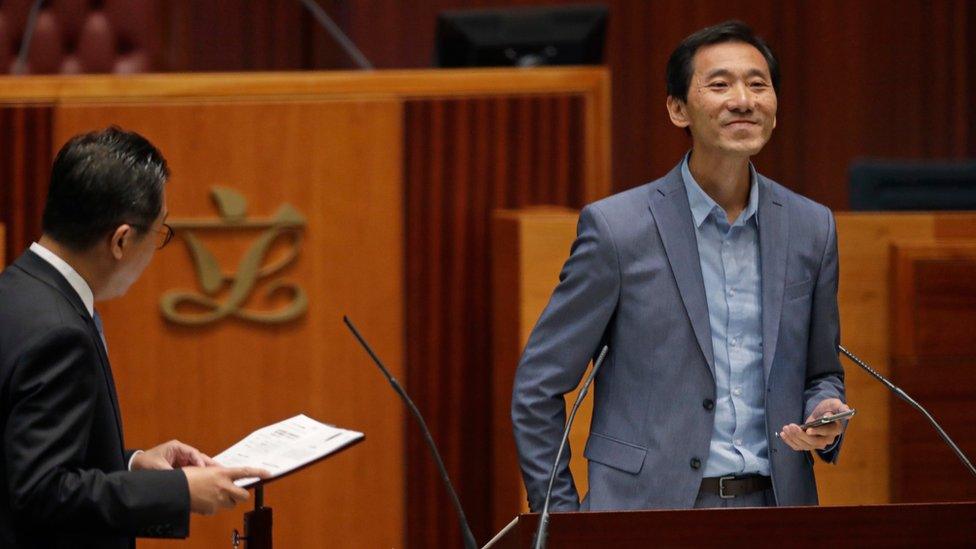
Edward Yiu added words supporting democracy to his oath
Mr Yiu, a university professor, advised the students organising the 2014 protests. He added lines to his oath, saying he would "fight for genuine universal suffrage".
His oath was rejected the first time - but he was allowed to retake it later.
Why is the government doing this now?
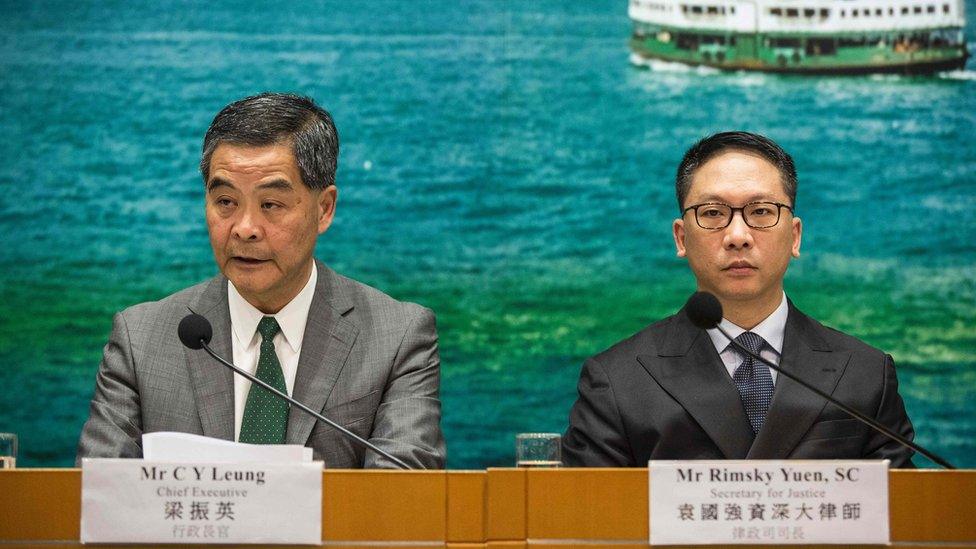
Justice Secretary Rimsky Yuen (right) said that all legislators "should act in accordance with the law"
Last month, the Chinese government issued a rare interpretation of Hong Kong's law, saying that all oaths taken by office-holders must be "solemn, accurate, complete and sincere", with no deviation from the official wording.
The move was widely seen as an attempt to disqualify the two pro-independence legislators, who had angered Beijing, and critics argued that it undermined Hong Kong's judicial independence.
The government now argues that it has a duty to enforce the law, but Justice Secretary Rimsky Yuen has not explained why some pro-Beijing legislators, who had also faced allegations, external that they varied their oaths, were not facing legal action.
- Published29 November 2016
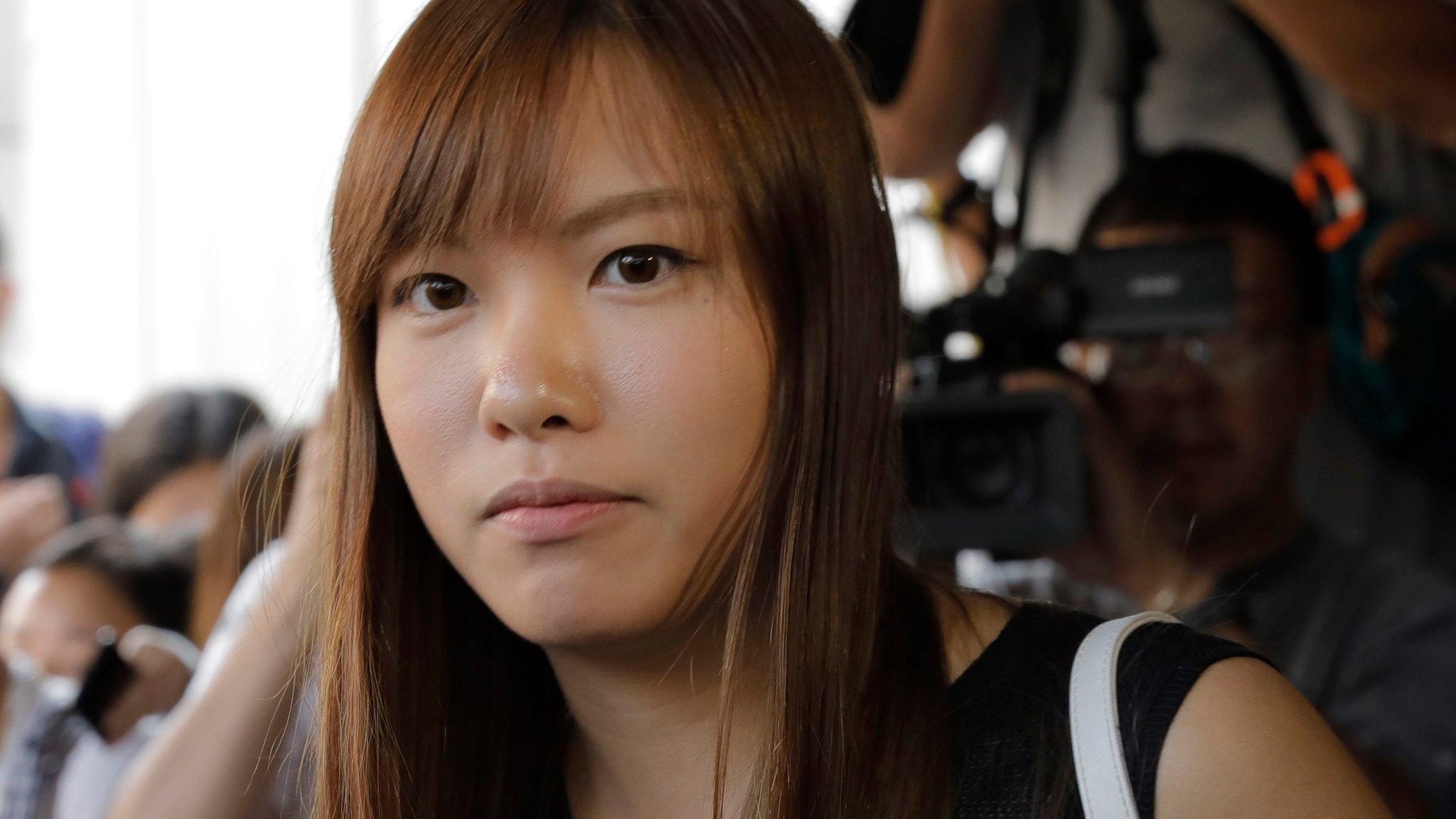
- Published7 November 2016
- Published2 November 2016
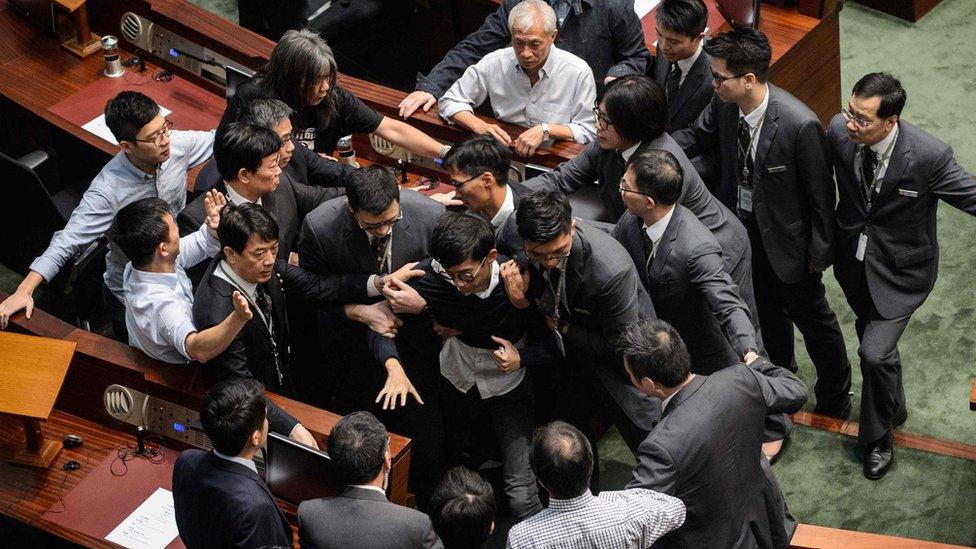
- Published18 June 2015
